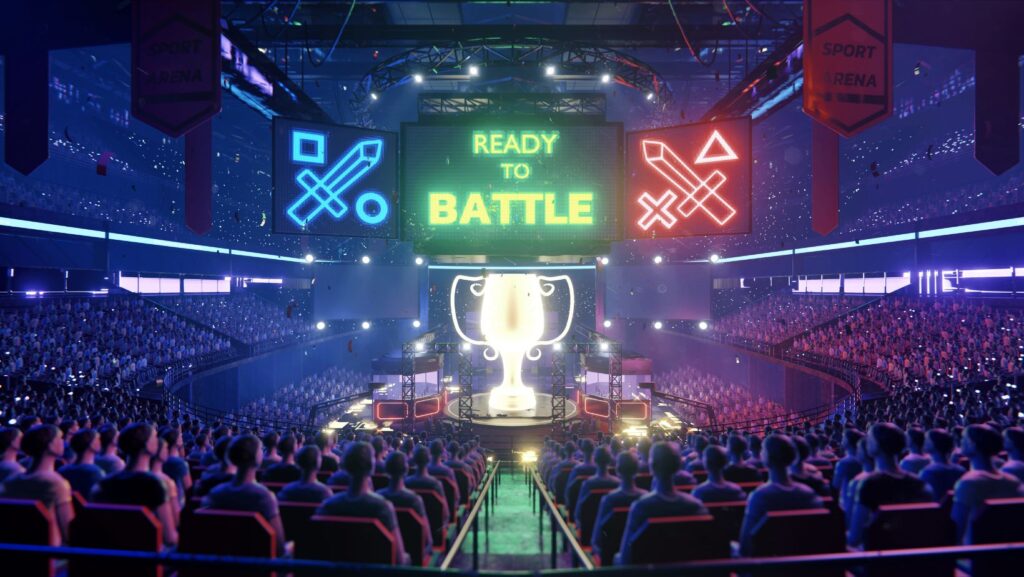 In the fast-paced world of competitive gaming, eSports teams have emerged as powerhouses, captivating millions of fans worldwide. These teams, composed of elite gamers, compete in various video game tournaments, showcasing skill, strategy, and teamwork. As the popularity of eSports continues to soar, these teams are not just gaming groups; they’re professional organizations with coaches, analysts, and sponsors. The rise of eSports teams has transformed gaming from a casual hobby into a full-fledged career option. Players train rigorously, often spending hours perfecting their craft and studying opponents. With lucrative prize pools and global recognition at stake, the dedication and discipline required to rival that of traditional sports. As eSports teams gain mainstream attention, they’re reshaping the landscape of entertainment and sports.
In the fast-paced world of competitive gaming, eSports teams have emerged as powerhouses, captivating millions of fans worldwide. These teams, composed of elite gamers, compete in various video game tournaments, showcasing skill, strategy, and teamwork. As the popularity of eSports continues to soar, these teams are not just gaming groups; they’re professional organizations with coaches, analysts, and sponsors. The rise of eSports teams has transformed gaming from a casual hobby into a full-fledged career option. Players train rigorously, often spending hours perfecting their craft and studying opponents. With lucrative prize pools and global recognition at stake, the dedication and discipline required to rival that of traditional sports. As eSports teams gain mainstream attention, they’re reshaping the landscape of entertainment and sports.
E Sports Team
The Structure of Professional Teams
Online-sports teams operate like traditional sports teams with hierarchies. Professional teams often consist of several key roles, including players, coaches, analysts, and managers. Teams generally have a captain who leads and strategizes during games. Coaches focus on improving players’ skills through tailored training sessions. Analysts analyze game footage to develop strategies and counter opponents. Managers handle logistics, schedules, and team coordination. Teams also have support staff like nutritionists and psychologists to ensure players’ well-being.
- Players: Compete in matches, execute strategies, and communicate with teammates. They specialize in particular roles within the game, such as attackers or defenders.
- Captain: Leads the team during matches, makes strategic decisions, and acts as the primary liaison between players and coaches.
- Coach: Develops training programs, provides feedback, and helps improve individual and team performance.
- Analyst: Analysis past games to identify strengths/weaknesses, studies opponents, and prepares strategic insights.
- Manager: Manages logistics, schedules practices/tournaments, and handles team finances and sponsorships.
- Support Staff: Includes nutritionists, psychologists, and physical trainers who ensure players’ mental and physical health.
Evolution of E-Sports Teams
Historical Overview
 E-sports teams have undergone significant changes since their inception in the late 1990s. Early teams were informal groups often organized by passionate gamers. They primarily participated in local tournaments. As the gaming industry expanded, the number of professional e-sports teams grew. By the mid-2000s, official tournaments started offering substantial prize money. Sponsorships from major tech companies became common. Teams such as Fnatic and Team Liquid established themselves as household names. They demonstrated advanced strategies and extensive teamwork. Today, e-sports teams operate similarly to traditional sports teams. They have dedicated facilities, formal contracts, and structured training sessions.
E-sports teams have undergone significant changes since their inception in the late 1990s. Early teams were informal groups often organized by passionate gamers. They primarily participated in local tournaments. As the gaming industry expanded, the number of professional e-sports teams grew. By the mid-2000s, official tournaments started offering substantial prize money. Sponsorships from major tech companies became common. Teams such as Fnatic and Team Liquid established themselves as household names. They demonstrated advanced strategies and extensive teamwork. Today, e-sports teams operate similarly to traditional sports teams. They have dedicated facilities, formal contracts, and structured training sessions.
Impact of Technology on Team Dynamics
Advancements in technology have reshaped e-sports team dynamics. High-speed internet has improved real-time communication during matches. Advanced gaming equipment enhances players’ performance. Data analytics tools provide valuable insights into gameplay strategies. Teams use these tools to analyze opponents and optimize their own tactics. Virtual reality (VR) and augmented reality (AR) have also entered the e-sports arena. They offer immersive training experiences. Streaming platforms like Twitch and YouTube increase teams’ visibility. They help build a robust fan base. Social media allows direct interaction between players and fans, fostering community engagement. Overall, technology has elevated the professionalism and efficiency of e-sports teams.
The Business of Online-Sports Teams
 E-sports teams have evolved into sophisticated enterprises, blending technology, strategy, and fan engagement to create a thriving industry. These teams now mirror traditional sports organizations, complete with professional management, sponsorship deals, and dedicated training facilities. The integration of advanced technologies has revolutionized team dynamics, making them more efficient and competitive. As the e-sports industry continues to grow, the business aspects of managing a team will become even more critical. Teams must navigate sponsorships, media rights, and fan engagement to sustain their growth. With the backing of technology and a dedicated fan base, e-sports teams are well-positioned to remain at the forefront of competitive gaming.The future looks promising for e-sports teams, offering endless opportunities for innovation and expansion. Their journey from informal groups to professional powerhouses underscores the transformative potential of technology and strategic management in the digital age.
E-sports teams have evolved into sophisticated enterprises, blending technology, strategy, and fan engagement to create a thriving industry. These teams now mirror traditional sports organizations, complete with professional management, sponsorship deals, and dedicated training facilities. The integration of advanced technologies has revolutionized team dynamics, making them more efficient and competitive. As the e-sports industry continues to grow, the business aspects of managing a team will become even more critical. Teams must navigate sponsorships, media rights, and fan engagement to sustain their growth. With the backing of technology and a dedicated fan base, e-sports teams are well-positioned to remain at the forefront of competitive gaming.The future looks promising for e-sports teams, offering endless opportunities for innovation and expansion. Their journey from informal groups to professional powerhouses underscores the transformative potential of technology and strategic management in the digital age.



